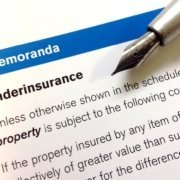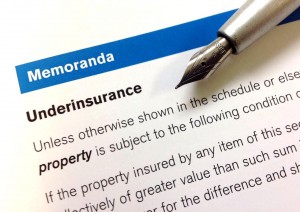 Whilst many of us spent mid-December enjoying and revelling in the run up to Christmas, for Whirlpool and their customers, things were seemingly going from bad to worse.
Whilst many of us spent mid-December enjoying and revelling in the run up to Christmas, for Whirlpool and their customers, things were seemingly going from bad to worse.
Having already been heavily criticised for their response to a fire risk in their tumble dryers (of which they sold more than five million over an 11 year period), they announced that they were going to be recalling 500,000 of their washing machines (branded as Hotpoint or Indesit) following the discovery of a fault with the door locking system that can cause overheating and risk of fire. The announcement left many customers facing a potentially lengthy period without a washing machine in their holiday homes.
What is the fault and is it dangerous?
Whirlpool have explained that “When the heating element in the washing machine is activated, in very rare cases a component in the door lock system can overheat, which, depending on product features, can pose a risk of fire.”
The issue is said to be found in 20% of Hotpoint and Indesit washing machines sold since 2014, which in the UK accounts for approximately 519,000 units.
In terms of danger, this fault has led to seventy-nine fires to date, although none had been significant enough to cause more than minor damage or cause any serious injuries.
What do you do if you’ve got a Hotpoint or Indesit washing machine?
If you own a washing machine that you have purchased from one of the two brands mentioned (Hotpoint and Indesit) since 2014, it’s worth checking online to see if your machine is a part of their product recall. You can do this on the link below:
You will only need the model and serial number of your appliance – found inside the door or on the back – to see if it is one of those affected. There is also a free helpline, open every day, available on 0800 316 1442
If you find your appliance is affected, to eliminate any risk, it should be unplugged and not used until it is repaired in your home by a trained engineer.
When will you get your machine back?
If your washing machine is being recalled, you will be able to choose between two options:
- A comparable replacement washing machine provided free-of-charge
- A free-of-charge in-home repair of your appliance
The company have yet to be drawn on how quickly washing machines will be repaired or replaced if found to have a fault, meaning that customers could be potentially waiting for months. They have suggested in the interim period that the machine could be continued to be used at far less risk if only used at a cold temperature of a 20c cycle, which means that the heating element wouldn’t be activated.
If the washing machine in your holiday home is affected by the recall note this in your fire risk assessment and record what action you are taking to rectify the problem. By doing so you will be demonstrating good practice and duty of care towards your guests.
For more information on specialist holiday home insurance for your cottage please give our experienced team a call on 01237 429 444 and we’ll be happy to answer any questions you have.

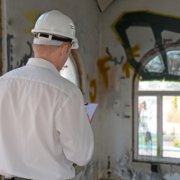
 We all know that from time to time accidents happen; perhaps someone spills a glass of wine (hopefully not red!) or smashes a glass fresh from the dishwasher. We can accept those and understand that accidents happen to the best of us. However what if someone were to cause malicious damage to your holiday home? Whether the malicious damage is caused by a paying guest or a trespasser, you’ll be faced with making repairs before your next guests arrive.
We all know that from time to time accidents happen; perhaps someone spills a glass of wine (hopefully not red!) or smashes a glass fresh from the dishwasher. We can accept those and understand that accidents happen to the best of us. However what if someone were to cause malicious damage to your holiday home? Whether the malicious damage is caused by a paying guest or a trespasser, you’ll be faced with making repairs before your next guests arrive.
 Wed 20th Dec – 0830 – 1300 Thurs 21st Dec – 0830 – 1700 Fri 22nd Dec – 0830 – 1700 Sat 23rd Dec – Closed Christmas Eve – Closed Christmas Day – Closed Boxing Day – Closed Wed 27th Dec – 1000 – 1600 Thurs 28th Dec – 1000 – 1600 Fri 29th Dec – 1000 – 1600 Sat 30th Dec – Closed New Years Eve – Closed
Wed 20th Dec – 0830 – 1300 Thurs 21st Dec – 0830 – 1700 Fri 22nd Dec – 0830 – 1700 Sat 23rd Dec – Closed Christmas Eve – Closed Christmas Day – Closed Boxing Day – Closed Wed 27th Dec – 1000 – 1600 Thurs 28th Dec – 1000 – 1600 Fri 29th Dec – 1000 – 1600 Sat 30th Dec – Closed New Years Eve – Closed




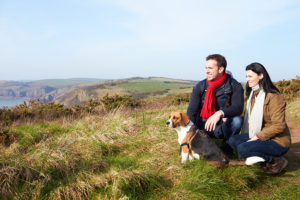


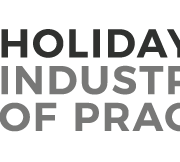


 Having faced freezing temperatures and snow drifts in late March, the summer of 2018 couldn’t have been in greater contrast when it comes to the weather. Britain baked in record breaking temperatures amid a hot dry spell that seemed to go on for months. Large swathes of land were so parched that fires erupted across the country in places such as Manchester and Dartmoor.
Having faced freezing temperatures and snow drifts in late March, the summer of 2018 couldn’t have been in greater contrast when it comes to the weather. Britain baked in record breaking temperatures amid a hot dry spell that seemed to go on for months. Large swathes of land were so parched that fires erupted across the country in places such as Manchester and Dartmoor.